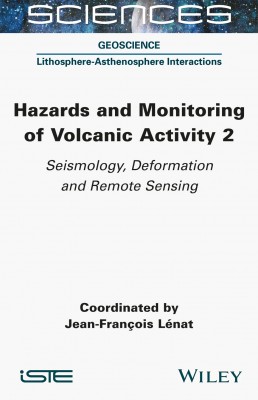
The impact of natural disasters has become an important and ever-growing preoccupation for modern societies. Volcanic eruptions are particularly feared due to their devastating local, regional or global effects. Relevant scientific expertise that aims to evaluate the hazards of volcanic activity and monitor and predict eruptions has progressively developed since the start of the 20th century. The further development of fundamental knowledge and technological advances over this period have allowed scientific capabilities in this field to evolve.
Hazards and Monitoring of Volcanic Activity groups a number of available techniques and approaches to render them easily accessible to teachers, researchers and students.
This volume sets out different surveillance methods, starting with those most frequently used: seismic surveillance and deformation. It then examines surveillance by remote sensing from ground, air and space, methods that exemplify one of the most spectacular advances in this field in recent times.
1. Seismic Monitoring of Volcanoes and Eruption Forecasting, Philippe Lesage.
2. Monitoring Volcano Deformation, Valérie Cayol, Aline Peltier, Jean-Luc Froger and François Beauducel.
3. Volcano Monitoring by Remote Sensing, Mathieu Gouhier.
4. Volcano Remote Sensing with Ground-Based Techniques, Franck Donnadieu, David Jessop, Philipson Bani and Séverine Moune.
Jean-François Lénat is Emeritus Professor at the Laboratoire Magmas et Volcans at the University of Clermont-Ferrand, France, and was the first scientific director of the volcano observatory at Piton de la Fournaise. He has studied many volcanoes, focusing particularly on the volcanism of the island of La Réunion.